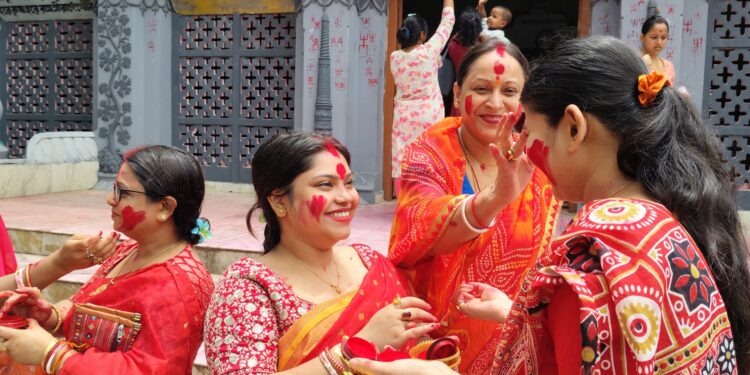Agartala, June 23: Hundreds of married Hindu women gathered at the Laxmi-Narayan temple in Agartala on Monday to mark the beginning of the four-day Ambubachi festival, a sacred annual ritual traditionally associated with fertility, womanhood, and the worship of Mother Shakti.
Though the main celebration takes place at the famed Kamakhya Temple in Guwahati, the observance in Tripura also drew large crowds of women, who participated in the rituals with deep devotion and symbolic gestures of prayer for the well-being and longevity of their husbands and families.
Dressed in traditional attire, the women performed age-old customs such as smearing vermilion (sindoor) on each other’s foreheads and faces — a symbolic act of fertility and marital bliss.
“On the occasion of Ambubachi, we pray for the good health and long life of our husbands and for happiness in our families,” said a devotee, adding, “We also smear vermilion on each other’s face and pray to never be without this vermilion on our foreheads as long as we live.”
Ritual offerings of milk and mangoes were made to the deity, along with the lighting of candles and incense sticks. Many women also drew auspicious vermilion symbols on the walls of the temple, a tradition believed to invoke divine blessings.
The Ambubachi Mela is rooted in Tantric practices and is observed with reverence by devotees of the Shakti cult. According to belief, during these four days — from the seventh to the tenth day of the Hindu month of Asadha — the presiding goddess Kamakhya Devi undergoes her annual menstruation cycle, symbolizing the Earth’s fertility.
The Ambubachi rituals, though ancient, continue to hold immense spiritual significance, especially for women who see it as a time to honor divine femininity and reaffirm their prayers for familial well-being.








































